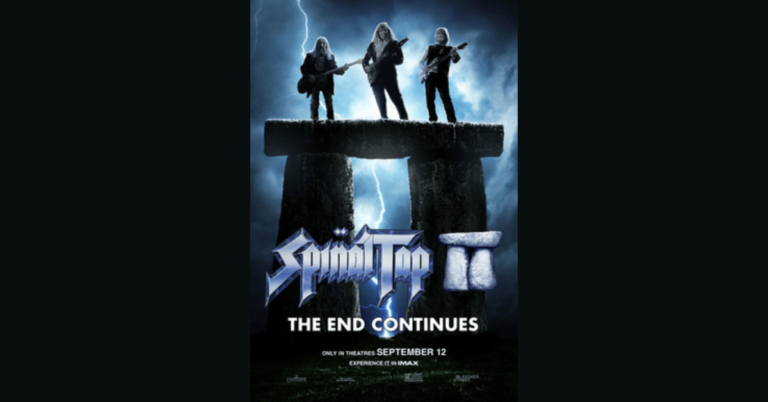Fantasmas Christian Review

There are shows that play by the rules, paint within the lines, and make sure they hit all the right beats to appeal to the masses. Fantasmas isn’t one of them. And that’s what makes it so wildly compelling. This isn’t your typical TV series—there’s nothing clean-cut or straightforward about it. It’s the kind of show that jumps from absurdity to depth, from something eerily hilarious to something strangely tragic, in a way that can leave your head spinning. But if you’re willing to let it take you along for the ride, you might find there’s something surprising at the core of its chaotic storytelling: a deep, if somewhat convoluted, look at humanity.
A Creator Who Refuses to Conform
The mind behind Fantasmas is Torres—a name that, for some, probably doesn’t ring a bell. But for anyone familiar with his work, it’s clear he’s not in the business of producing cookie-cutter entertainment. There’s a certain rawness to his style, a refusal to water down his vision for the sake of broader appeal. And this show feels like his defiant proclamation: “I’m here, I’m different, and I’m not going to compromise.”
It’s rare, really, in an industry that often rewards predictability over innovation. Most creators want their work to be “palatable,” as if art should come with some kind of universal nutritional label: something for everyone, nothing too spicy, no jagged edges. But Torres doesn’t seem to care. There’s no sense of a safety net in Fantasmas. You can tell this series is a product of a creator who’s fought hard to remain true to himself—and it shows. It’s an authenticity that’s almost bracing, particularly in a culture that likes its TV shows predictable and its narratives easily digestible.
Finding Depth Amid the Absurdity
But let’s be clear: Fantasmas is no simple show. It’s a bizarre, fragmented collection of stories that don’t always connect—or seem like they shouldn’t—until, suddenly, they do. One moment, you’re watching a horror-inflected tale of a character grappling with an otherworldly curse, and the next, you’re plunged into a vignette that’s half-noir, half-existential crisis. There are bits that feel like fever dreams—twisted, uncanny—and others that strike unexpectedly sincere notes. It’s a bit like wandering through a labyrinth of Torres’ imagination, with each corner you turn revealing something new, something disconcerting or fascinating or both.
That’s probably what makes Fantasmas so unsettling. It’s as if Torres has taken a kaleidoscope and shattered it, leaving the pieces scattered for the viewer to piece together. The characters who populate these stories are often exaggerated versions of reality—desperate, lost, clinging to delusions or haunted by their own choices. But they’re not mere caricatures. They’re people caught in absurd scenarios, yes, but they’re also recognizable in their brokenness. The show’s genius is that it can shift from the ridiculous to the painfully real in a heartbeat, making you laugh in one breath and flinch in the next.
Humanity on Display: Flaws and All
This, ultimately, is where Fantasmas finds its strength: in its portrayal of humanity, flaws and all. There’s no sugarcoating here. No attempts to dress things up. Characters chase after hollow goals, sabotage their own happiness, and make terrible decisions with devastating consequences. The show doesn’t try to redeem them, nor does it glorify their darkness. Instead, it lays them bare, letting their stories unfold without judgment.
For a Christian viewer, that might be a tough pill to swallow. We’re used to narratives that provide clear moral direction—stories where good and evil are distinct, and redemption is just around the corner for those who seek it. But Fantasmas operates in a more ambiguous space. It’s not concerned with delivering tidy resolutions. Instead, it revels in the messiness of life, the gray areas where people are neither wholly virtuous nor irredeemably lost. They’re just… human. And that’s where the show’s unsettling power lies.
The Fight for Authenticity
If Fantasmas is anything, it’s a testament to Torres’ creative tenacity. You get the sense, watching it, that you’re glimpsing into a world shaped by someone who’s had to fight to maintain his own voice. There’s something almost fierce in its execution, an insistence that this show would rather exist as an uncompromised vision than appeal to a broader audience. In that sense, Fantasmas is almost a declaration: a refusal to be boxed in, a pushback against a system that often demands conformity.
As Christians, there’s a parallel here worth noting. Staying true to one’s convictions is never easy—especially in a world that prizes comfort and consensus over truth. We’re called to be salt and light, to stand firm in what we believe, even when it’s unpopular. Torres isn’t crafting Fantasmas for the purpose of spreading a specific message, but there’s something undeniably powerful about seeing an artist cling to his own vision, despite the cost.
Navigating Sin and Redemption
There’s no denying that Fantasmas doesn’t shy away from darkness. Some of the narratives dive deep into unsettling territory, exploring themes of obsession, greed, and corruption. It’s not a show that pretends people are inherently good; rather, it highlights just how easily we can be led astray. And yet, there’s a peculiar sort of grace woven throughout. Characters who are neck-deep in their own messes sometimes experience a flicker of awareness, a moment of clarity where they see their own reflection and realize just how far they’ve fallen.
It’s subtle, these moments of almost-redemption. They’re not accompanied by soaring music or grand declarations of change. Often, they’re barely there—a slight softening, a step away from the brink. But they’re present, and they lend a sense of hope, however fragile, to the otherwise chaotic world of Fantasmas. It’s a reminder that grace can be quiet, almost imperceptible, and that redemption doesn’t always come in a blinding flash of light.
The Verdict: A Show Worth Watching?
So, where does that leave Fantasmas? Is it something a Christian audience should engage with? That depends on what you’re looking for. If you’re expecting a show that aligns neatly with Christian values, that provides clear-cut heroes and villains and a reassuring moral, this isn’t it. But if you’re willing to wrestle with its ambiguity, to sit with its discomfort and let it challenge your preconceptions, you might find there’s more to it than meets the eye.
Fantasmas is unsettling, yes. But it’s also surprisingly profound. It asks questions about human nature, about our choices and the paths we take, and it doesn’t always offer easy answers. For a viewer with the patience to see beyond its strangeness, it’s a series that can provoke thought, stir up emotions, and even, in its own twisted way, point to deeper truths.
Rating: 7.5/10
For its fearless storytelling, complex characters, and uncompromising vision, Fantasmas deserves recognition. It’s not for everyone, but for those willing to embrace its eccentricities, it offers a uniquely compelling experience that lingers long after the credits roll.






